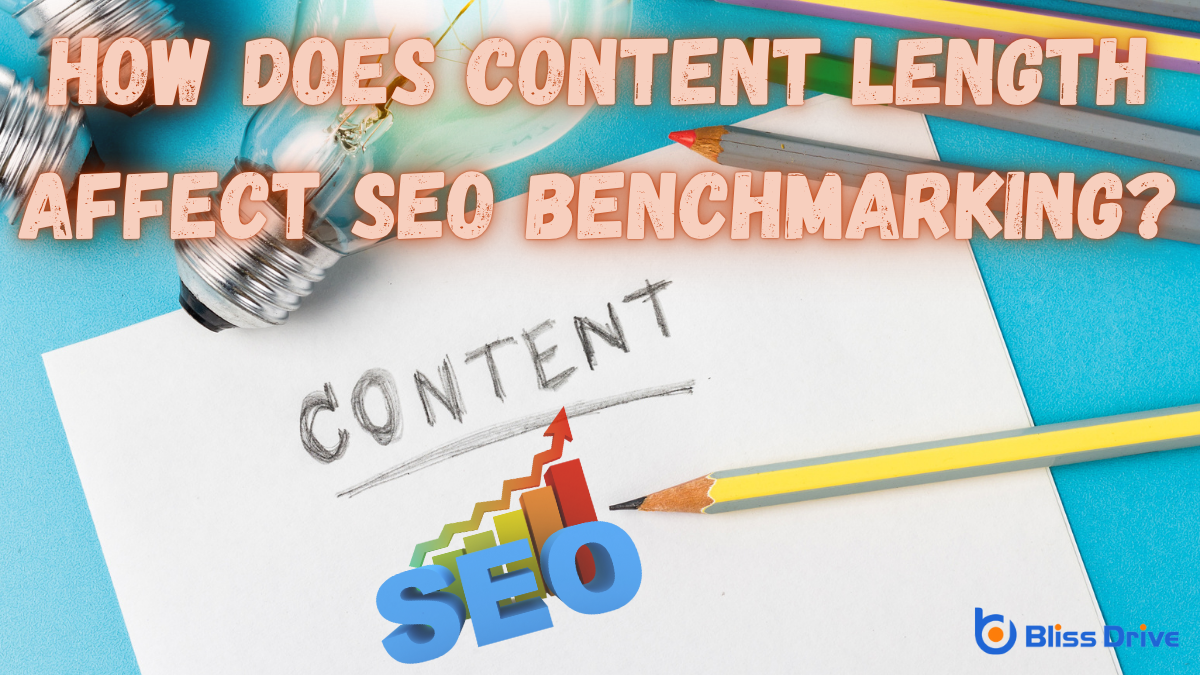Learn More About Us

You might be surprised at how much content length can impact your SEO efforts. It’s not just about filling pages with words; it’s about creating value. Longer content often ranks higher because it answers questions thoroughly, keeping readers engaged. But does that mean more words always equal better rankingsThe position at which a website appears in the SERP.? Not necessarily. The secret lies in balancing depth with quality and relevance. Ready to explore how this balance can elevate your SEO strategy?
While exploring SEO strategies, you'll find that content length plays an essential role in how well a page ranks.
Search engines like Google often favor longer content because it tends to provide more detailed information, which can enhance user experience. When you write thorough articles, you're more likely to cover various aspects of a topic, making your content more valuable to readers. This thoroughness can leadA potential customer referred by an affiliate who has shown interest in the product or service but h... to increased engagementThe interactions that users have with a brand’s content on social media., such as longer time spent on the page, which signals quality to search engines.
Moreover, longer content allows for more opportunities to naturally include relevant keywordsWords or phrases that users type into search engines to find information. and phrases, helping improve your page's SEO.
However, it's vital to balance length with quality, ensuring you provide insightful, well-organized information that meets your audience's needs.

Longer content isn't the only factor influencing SEO; understanding keyword densityThe percentage of times a keyword appears on a page compared to the total number of words. is equally important.
When crafting your content, focus on balancing keyword usage without stuffing them unnaturally. Search engines like Google look for relevant, well-placed keywords to determine the topic and relevance of your page.
Aim for a natural flow, where keywords integrate smoothly into your sentences.
When considering how content length impacts user engagement, it’s essential to understand that different audiences have varying preferences and needs. Some users prefer quick, concise information to make fast decisions, while others appreciate detailed, in-depth content that thoroughly covers a topic.
You should analyze your audience's behavior to determine what they value most. Shorter content often attracts those seeking quick answers, increasing bounce rates if not immediately informative. Longer content can engage users deeply, encouraging them to spend more time on your site.
However, it’s imperative to maintain quality, regardless of length. Striking the right balance guarantees users find the information they seek, leading to better engagement.
Test different lengths and monitor metrics like time on page to refine your approach.
Understanding the intricacies of content depth is essential for improving search engine rankings. When your content thoroughly covers a topic, it signals to search engines that you’re providing valuable information.
Search engines like Google evaluate how well your content addresses users’ queries. By diving deep into a subject, you increase the likelihood of satisfying search intentThe purpose behind a user’s search query., which can boost your rankings.
Consider including detailed explanations, relevant keywords, and authoritative sources to enrich your content. It’s not just about length; it’s about providing thorough insights.
Focus on user experience by ensuring your content is clear and logically structured. By prioritizing depth, you’re more likely to retain visitors, reduce bounce rates, and increase your chances of achieving higher visibility in search results.

Though both long-form and short-form content have their unique advantages, it's important to understand how each can impact your SEO strategy.
Long-form content, typically over 1,000 words, can help you dive deep into a topic, increasing your chances of ranking higher by providing extensive value. It often encourages more time on page, backlinksLinks from other websites pointing to your website, crucial for SEO., and social shares, which search engines love.
On the other hand, short-form content, usually under 1,000 words, is quick to read, making it perfect for engaging busy users or covering straightforward topics.
It can boost your visibility when optimized for trending keywords, allowing you to rapidly respond to current events.
Balancing both types in your content strategyA plan for creating, publishing, and managing content to meet business goals. helps meet diverse audience needs and improve overall SEO performance.
When evaluating content, you should focus on balancing length and value rather than just counting words.
Prioritize depth to make certain your material provides meaningful insights and addresses your audience's needs.
Keep an eye on engagement metricsMetrics that measure user interaction with a website, such as time on site and pages per session. to see if your audience finds your content valuable and engaging.
While it might seem tempting to prioritize sheer word count in an effort to please search engines, the real challenge lies in striking the right balance between length and value.
You need to guarantee that every word contributes meaningfully to the reader's experience. Search engines have become adept at recognizing content that serves a purpose beyond just filling space.
When crafting your content, focus on delivering information that's both thorough and engaging. Ask yourself: Does this section add necessary insights or just more text?
By prioritizing valuable content, you not only cater to search algorithms but also build trust with your audience.
In the ongoing debate between quality and quantity, depth should always take precedence over mere word count.
When crafting content, you want to guarantee it provides valuable insights and addresses your audience’s needs. It's not about cramming in as many words as possible but rather focusing on delivering meaningful information.
Quality content engages readers, establishes authority, and encourages sharing, which ultimately helps with SEO.
Shifting focus from content depth to how it resonates with your audience, let's explore audience engagement metrics in the quality versus quantity debate.
You might wonder if longer content holds more value. Instead, prioritize how well your content engages and retains visitors. Track metrics like time on page, bounce rateThe percentage of visitors who leave a website after viewing only one page., and social shares. These indicators reveal if readers find your content valuable and worth their time.
It's not just about how much you write but how effectively you address your audience's needs. When readers comment, share, or spend more time on your page, it shows that your content truly resonates.
When considering how search engines view content length, you might notice that longer content often ranks better because it can cover topics more thoroughly.
However, shorter content may struggle to capture search engines' attention due to limited depth and detail.
Balancing length with quality guarantees your content is both informative and favored by search algorithms.
Although search engines evaluate various factors when ranking content, the length of your content plays a crucial role in its success.
Longer content often ranks better because search engines view it as more thorough. It allows you to cover topics in greater depth, providing detailed information that caters to user intent. You’re more likely to include relevant keywords naturally, enhancing your content's relevance.
Additionally, longer articles tend to attract more backlinks, increasing your authority and trustworthiness in the eyes of search engines. When you offerThe specific product or service being promoted by affiliates. in-depth insights, readers spend more time on your page, improving engagement metrics like dwell time.
Search engines interpret these signals as indicators of valuable content, boosting your chances of ranking higher in search results.
While longer content often provides thorough insights, shorter content has its own set of challenges in the eyes of search engines. You might think that concise information is enough, but search engines can struggle to understand the context of shorter pieces.
They rely heavily on keywords and context clues to determine relevance, which can be sparse in brief content. This lack of detail might lead to lower rankings because search engines could perceive it as less authoritative or all-encompassing.
To improve visibility, verify that your shorter content is still well-structured. Use clear headings, concise language, and strategic keywords.
Don’t forget to include internal and external links to provide additional context. Remember, it’s about balance; even short content should offer value and clarity to both users and search engines.

Exploring real-world examples can provide valuable insights into how content length influences ranking success.
Take, for instance, a study by Backlinko, which analyzed over a million Google search results. It found that the average word count of a top-ranking page was around 1,447 words. This suggests that longer content often performs better in search results.
However, it's not just about word count; quality matters too.
Another case study highlighted by Neil Patel demonstrated that a detailed article of approximately 2,000 words increased organic trafficVisitors who come to a website through unpaid search engine results. considerably.
These examples show that while longer content can boost rankings, it should be relevant and engaging. You need to create content that not only meets a word count but also provides value to your audience.
Building on the insights from real-world case studiesIn-depth analyses of specific instances or examples to highlight success stories or lessons learned...., it's clear that optimizing content length involves more than just hitting a specific word count.
Focus on delivering value and relevance. Start by understanding your audience's needs and the intent behind their searches. This guides you in crafting content that answers their questions thoroughly.
Use clear headings and subheadings to break up text, making it easy for readers to skim. Incorporate multimedia like images or videos to enhance engagement.
Regularly update your content to keep it fresh and relevant. Remember, quality trumps quantity. A longer piece isn't always better if it lacks substance.
As we look toward the future of content length and SEO, it's clear that search engines will increasingly favor content that aligns closely with user intent.
You'll need to focus on creating material that genuinely addresses what your audience is searching for. It's not just about writing longer articles; it’s about delivering value.
Search algorithms will evolve, prioritizing content that answers questions concisely and effectively.
Think about incorporating multimedia elements, like videos or infographicsVisual representations of information, data, or knowledge intended to present complex information qu..., which can enhance engagement without relying solely on text.
Shorter, high-quality content could gain traction, especially as mobile searchUsing a mobile device to conduct internet searches. continues to dominate.
Stay adaptable by monitoring trends and updating your strategies accordingly.
Always prioritize quality over quantity, ensuring your content provides meaningful insights that resonate with your audience.
In understanding content length and SEO, remember that while longer articles often perform better due to depth and engagement, quality should always come first. Don't just aim for more words; instead, focus on delivering valuable content that truly addresses your audience's needs. Balance keyword density and guarantee your content is both engaging and informative. As search engines evolve, staying adaptable and prioritizing user experience will keep your content competitive in the ever-changing SEO landscape.
